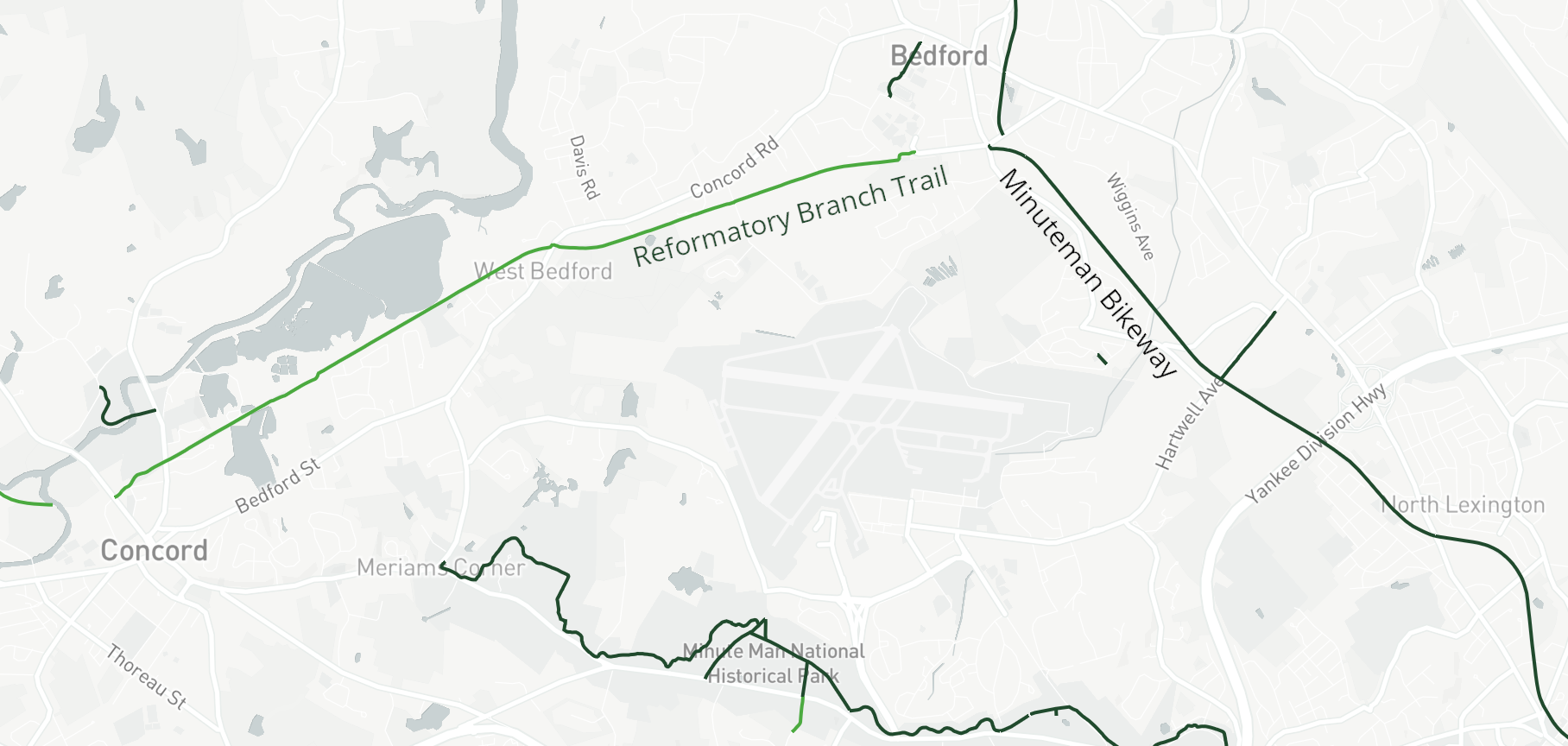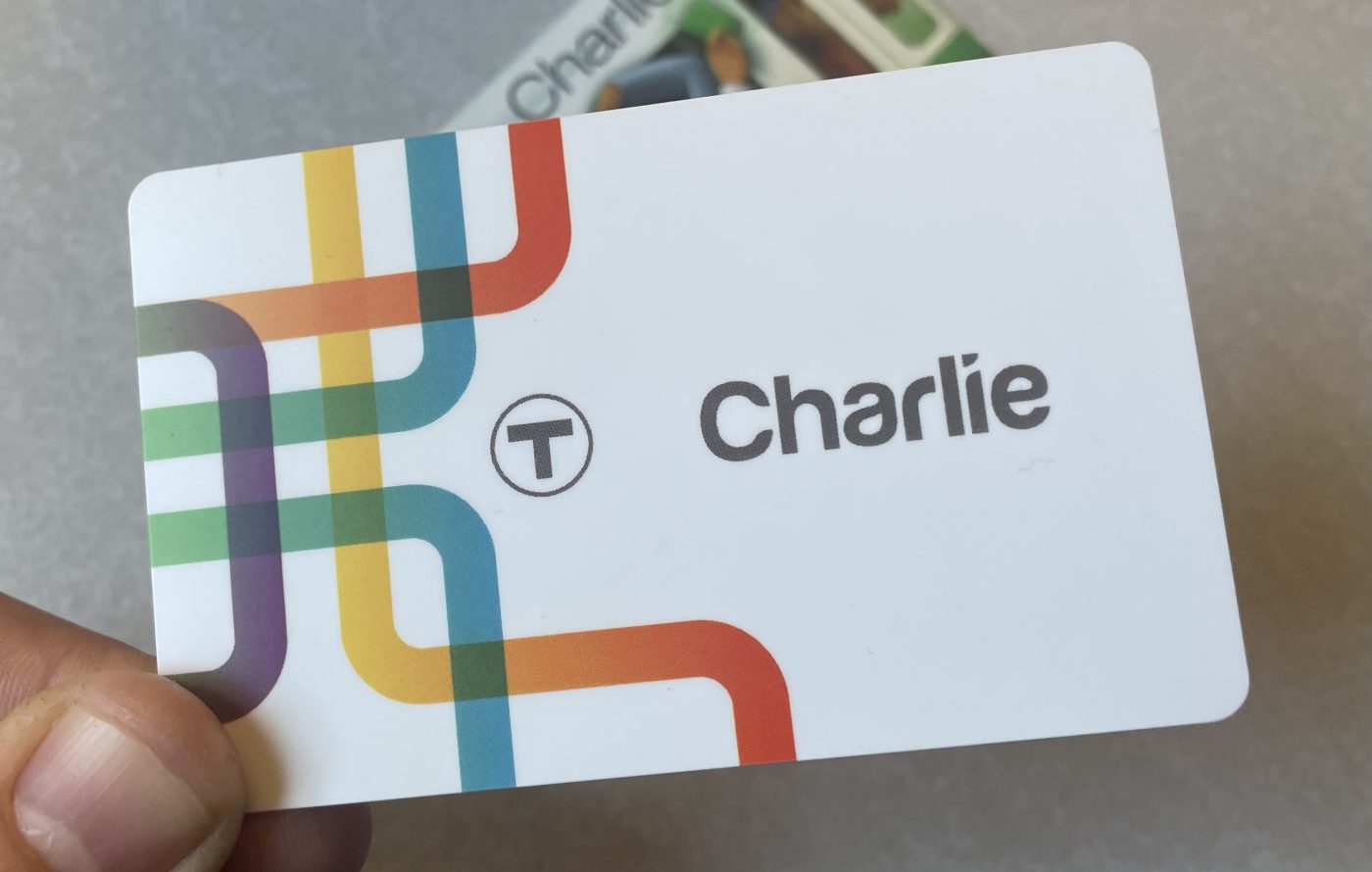Last Monday, Town Meeting voters in the Town of Bedford narrowly rejected necessary land acquisitions for the town's "Minuteman Bikeway Extension" project, a proposed 1.7-mile multi-use pathway that would have connected Bedford's town center with the Concord town line at the western edge of the town.
The trail is also known as the Reformatory Branch Trail, an abandoned railway that spans four miles between the town centers of Concord and Bedford. At its eastern end, in Bedford, the proposed trail would connect to the existing Minuteman Bikeway; at its western end, in Concord, the trail ends about 2 miles from the expanding Bruce Freeman Rail Trail.
The Reformatory Branch is currently an unimproved and frequently muddy pathway for most of its length, and is only accessible to able-bodied hikers and mountain bikers.
On multiple occasions since 2004, Bedford's Town Meeting has voted in support of upgrading the pathway to make it accessible, and provide a more feasible alternative for biking and walking between West Bedford's residential neighborhoods and the schools and retail stores in Bedford's town center.
After years of preliminary design work, the Town finally submitted its final "100 percent" blueprints for the project to MassDOT this January.
As part of those final designs, MassDOT also approved a right-of-way acquisition plan for the trail project – a prerequisite for construction work to begin.
However, because some abutters still oppose the proposed trail, the town needed its voters to authorize the use of eminent domain. Under state law, eminent domain requires the support of at least two-thirds of Bedford's Town Meeting voters.
On March 28, a majority of Bedford's Town Meeting approved a $1.5 million appropriation to support land acquisition associated with the trail project in one agenda item.
But when it came time to vote for Article 11, which would have authorized the necessary land acquisitions "by gift, purchase, or eminent domain," 363 voters were in favor, and 235 were opposed.
That majority wasn't big enough to clear the two-thirds threshold required to authorize eminent domain, and the article failed.
“I've spent 17 years in this process," says Terry Gleason, a Bedford resident and former Chair of the town's Bike and Pedestrian Advisory Committee. "It’s just devastating to me, because we believed it was a done deal.”
Bedford's Town Meeting had previously endorsed the project in several other votes dating back to 2004, when the Town Meeting first approved funding for a feasibility study. Trail advocates had believed that the project was on secure footing after a contentious Town Meeting in 2010, when Bedford voters endorsed a paved pathway after hours of debate.
Gleason says he's uncertain how the project will be able to proceed without the necessary authorizations to acquire the trail corridor for public use, and he worries that the project's state and federal funding could be in jeopardy after the town meeting's vote.
The western segment of the Reformatory Branch Trail could be the subject of a similar debate in the neighboring Town of Concord's town meeting on May 1.
Two competing citizen's petitions are on Concord's Town Meeting agenda. Article 46 proposes a $75,000 expenditure for "a feasibility study" to examine potential "grading and drainage improvements on and to the Reformatory Branch Trail" within the Town of Concord.
A second petition, Article 48, would "recommend, to the owners of the various portions of the Reformatory Branch Trail in Concord and to the individuals and entities and all other parties responsible for the care thereof, that the Trail continue to be a maintained in an unpaved natural condition... and that any future changes made to drainage, to features affecting individuals with reduced mobility, or to other aspects of the Trail, be done in a way that causes the least injury possible to existing trees" along the trail corridor.






